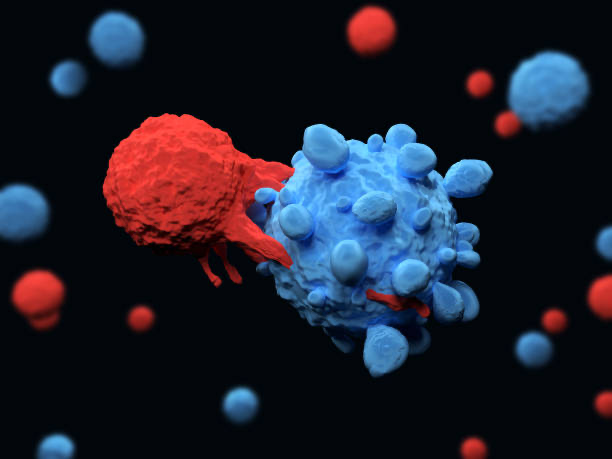Determining Immunogenicity for CAR-T cell Therapies
Chimeric Antigen Receptor (CAR)-T cell therapy is a novel cancer therapy that harnesses and redirects the cytotoxic activity of T cells against cancer cells. CAR-T cells are generated by engineering T cells to express a chimeric antigen receptor, which is typically an antibody directed against a target on the cancer cell, fused with TCR signaling components. Several CAR-T cell products have been approved for treatment of hematological cancers, and there are numerous ongoing trials with CAR-T therapies across a broad spectrum of disease indications. Given the broad investment in this new and potentially powerful therapy, it is important to have the appropriate analytical strategies in place to accurately measure the safety and efficacy of these novel modalities.
A critical factor in the safety and efficacy of biotherapeutics is immunogenicity, which refers to the ability of the biotherapeutic to elicit an immune response. As with any foreign substance, when introducing a biotherapeutic into a patient, it is possible for the patient’s immune system to recognize the biotherapeutic as foreign and produce an immune response against it. In the case of CAR-Ts, the CAR construct on the surface of the T cell can be recognized as foreign, and therefore it is necessary to have clinical assays in place that monitor this potential response.
The immune response consists of two components: humoral and cellular. The humoral response is driven by B cells that produce antibodies against the therapeutic, known as anti-drug antibodies (ADAs). A humoral immune response to the CAR-T would be the production of ADAs against the recombinant CAR. These ADA could be detected either through bridging ELISA or a cell-based format which uses a cell expressing the recombinant CAR and a fluorescent secondary antibody to detect ADA binding on a flow cytometer.
Since the CAR-T receptor construct is expressed on cells that are infused into the patient, there is the potential to induce a cellular immune response against the CAR-T cell itself. The CAR-T cell can present portions of the recombinant CAR on the surface of the cell on major histocompatibility complex (MHC) class I, allowing recognition by cytotoxic CD8 T cells. The activated CD8 T cell can then target the CAR-T for lysis, leading to decreased amount of CAR-T, resulting in decreased therapeutic efficacy. Therefore, it is important to monitor the cellular immune response as an important safety assessment during clinical trials.
Cellular immunogenicity can be monitored via several different mechanisms. One of the most common methods for monitoring cellular immunogenicity is through ELISpot. The ELISpot assay measures T cell responses through cytokine release. To monitor cellular immunogenicity for CAR-T therapies, the CAR-T sequence is used to generate overlapping peptide pools, and these pools are added to patient peripheral blood mononuclear cells (PBMCs). If there are reactive T cells present in the patient PBMC sample, they will produce inflammatory cytokines such as Ifn-gamma against the peptide/CAR-T construct, and this will be read as a positive spot on the ELISpot membrane. Inflammatory cytokine secretion can also be measured via flow cytometry. Similar to the ELISpot assay method, patient PBMCs can be stimulated with peptides derived from the CAR-T and the resulting cytokine production is measured via intracellular cytokine staining. An alternative method to ELISpot is a cytotoxic assay, which measures target cell lysis. In this experimental design, target cells expressing the CAR-T construct are added to the patient PBMCs. If there is an immune response by the patient T cells, the target cells will be lysed, which can be readout as a cytotoxicity assay.
While CAR-T cell therapies are still considered a novel modality, we do not fully understand the potential impact of immunogenicity against them. Therefore, it is critical to have assays in place that can detect both humoral and cellular immune responses, and the data from these assays will play a critical part in determining the overall efficacy, as well as safety, of the CAR-T therapy and the benefit it can deliver to patients.
